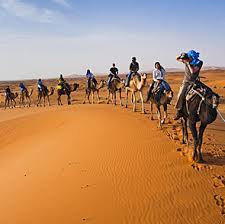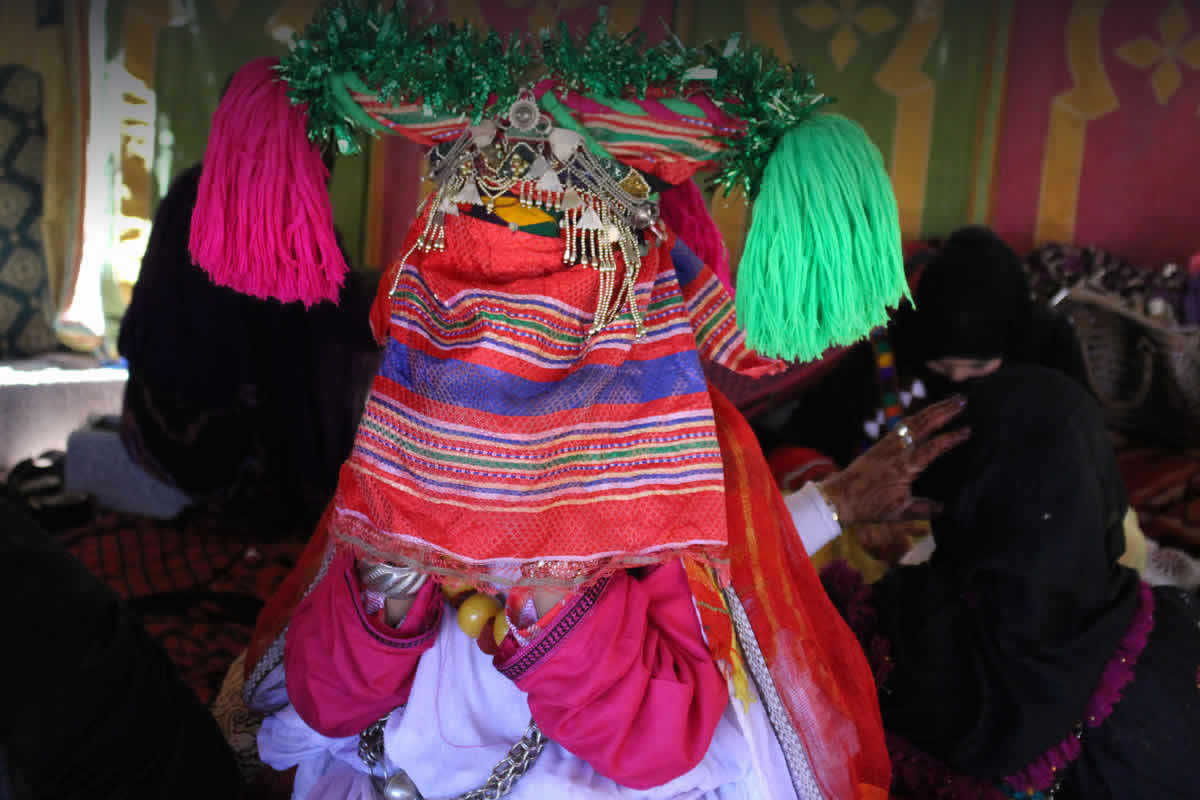The Political History of Morocco: A Tapestry of Dynasties and Transitions
Located at the crossroads of Africa and Europe, Morocco boasts a political history as diverse and intricate as its colourful tapestries. From ancient Berber kingdoms to modern constitutional monarchy, the evolution of Morocco’s political landscape reflects a blend of indigenous traditions, Islamic influences, and colonial legacies.
Ancient Kingdoms and Dynasties
The political history of Morocco dates back to antiquity, with the region being home to various Berber tribes and kingdoms. One of the most notable early dynasties was the Idrisid dynasty, founded by Idris I in the 8th century. The Idrisids established Fes as their capital and played a crucial role in spreading Islam across North Africa.
Following the decline of the Idrisids, Morocco saw the rise of several powerful Berber dynasties, including the Almoravids, Almohads, and Merinids. These dynasties expanded Morocco’s territory, built magnificent cities like Marrakech and Rabat, and fostered a flourishing culture that blended Arab, Berber, and Andalusian influences.
Colonialism and Independence
In the 19th and early 20th centuries, Morocco became a battleground for European powers seeking to establish colonial dominance. The Treaty of Fez in 1912 made Morocco a French protectorate, leading to widespread resistance from Moroccan nationalists.
After decades of struggle for independence, Morocco regained its sovereignty in 1956 under King Mohammed V. The country embarked on a path towards modernisation while preserving its rich cultural heritage.
The Era of King Hassan II
King Hassan II ascended to the throne in 1961 and ruled Morocco for nearly four decades. His reign was marked by political challenges, including opposition movements seeking greater democracy and human rights reforms.
Despite facing internal dissent and external pressures, King Hassan II managed to maintain stability in Morocco while navigating regional conflicts such as the Western Sahara dispute with neighbouring Algeria.
Modern Constitutional Monarchy
Since King Mohammed VI took the throne in 1999 following his father’s death, Morocco has undergone significant political reforms aimed at enhancing democracy and human rights. The king introduced a new constitution in 2011 that granted more powers to elected officials while retaining his role as head of state.
Today, Morocco is known for its stable political system based on a constitutional monarchy with an elected parliament. The country continues to balance tradition with modernity as it strives to address socio-economic challenges and promote inclusive governance.
In Conclusion
The political history of Morocco is a testament to resilience, adaptability, and continuity. As the country navigates through complex geopolitical dynamics and societal transformations, its rich heritage serves as a guiding light towards a future that honours both its past glory and present aspirations.
Exploring Morocco’s Political History: From Ancient Dynasties to Modern Reforms
- Rich tapestry of ancient Berber kingdoms and dynasties.
- Influential role in spreading Islam across North Africa.
- Historical legacy of powerful dynasties like the Almoravids and Almohads.
- Successful struggle for independence from colonial rule in 1956.
- Stable political system under modern constitutional monarchy.
- Continual efforts towards political reforms and democratisation.
- Balancing tradition with modernity to address socio-economic challenges.
Challenges in Morocco’s Political History: Colonial Legacy, Authoritarian Past, Regional Conflicts, and Socio-Economic Disparities
Rich tapestry of ancient Berber kingdoms and dynasties.
The rich tapestry of Morocco’s political history is intricately woven with the legacies of ancient Berber kingdoms and dynasties. From the illustrious Idrisid dynasty to the formidable Almoravids and Almohads, these indigenous rulers shaped the cultural landscape of Morocco with their grandeur and influence. Their legacy lives on in the vibrant cities they built, the traditions they preserved, and the enduring spirit of unity they instilled in Moroccan society. The Berber kingdoms and dynasties form a foundational thread in Morocco’s historical fabric, embodying a legacy of resilience, innovation, and cultural richness that continues to captivate and inspire generations to come.
Influential role in spreading Islam across North Africa.
One significant pro of Morocco’s political history is its influential role in spreading Islam across North Africa. The early dynasties, such as the Idrisids, played a pivotal role in promoting the teachings of Islam and establishing a strong Islamic presence in the region. Through their governance and cultural influence, Morocco became a beacon of Islamic civilization, fostering intellectual and spiritual growth that resonated throughout North Africa and beyond. This historical legacy not only shaped Morocco’s identity but also contributed to the broader dissemination of Islamic principles and values across the continent.
Historical legacy of powerful dynasties like the Almoravids and Almohads.
The historical legacy of powerful dynasties like the Almoravids and Almohads has left an indelible mark on the political history of Morocco. These dynasties, known for their military prowess and cultural achievements, shaped the trajectory of the region and influenced its development for centuries to come. The Almoravids’ expansionist policies and religious fervour, as well as the Almohads’ architectural innovations and intellectual advancements, not only solidified their own reigns but also laid the foundation for Morocco’s unique identity as a crossroads of diverse influences. Their legacies continue to inspire admiration and curiosity, underscoring the enduring significance of Morocco’s dynastic history in shaping its present-day political landscape.
Successful struggle for independence from colonial rule in 1956.
In 1956, Morocco achieved a significant milestone in its political history by successfully breaking free from colonial rule. The struggle for independence marked a turning point for the nation, as it reclaimed its sovereignty and embarked on a journey towards self-determination. Through resilience, unity, and unwavering determination, Moroccans fought against foreign domination and secured their right to govern themselves. The year 1956 stands as a testament to the courage and tenacity of the Moroccan people in asserting their independence and shaping their own future.
Stable political system under modern constitutional monarchy.
One of the notable strengths of Morocco’s political history is the establishment of a stable political system under a modern constitutional monarchy. With King Mohammed VI at the helm since 1999, Morocco has undergone significant reforms aimed at enhancing democracy and governance. The introduction of a new constitution in 2011 granted more powers to elected officials while maintaining the king’s role as head of state. This balance between tradition and modernity has contributed to political stability, allowing Morocco to navigate challenges and pursue socio-economic development with a sense of continuity and order.
Continual efforts towards political reforms and democratisation.
Morocco’s commendable commitment to continual efforts towards political reforms and democratisation has been a pivotal pro in its political history. Through initiatives such as the introduction of a new constitution in 2011, which expanded the powers of elected officials and promoted greater democratic participation, Morocco has demonstrated a willingness to adapt and evolve its governance structures. These reforms have not only strengthened the country’s democratic institutions but also fostered a more inclusive political environment where diverse voices can be heard and represented. By prioritising democratisation, Morocco is paving the way for a more transparent and accountable system that aligns with the aspirations of its people for a brighter future.
Balancing tradition with modernity to address socio-economic challenges.
Morocco’s adeptness at balancing tradition with modernity has been a key strength in addressing its socio-economic challenges. By drawing on the country’s rich cultural heritage while embracing progressive reforms and innovations, Morocco has been able to navigate the complexities of a rapidly changing world. This approach has allowed the nation to preserve its unique identity and values while also fostering economic development, social progress, and inclusivity. Through this harmonious blend of tradition and modernity, Morocco continues to chart a path towards a more prosperous and equitable future for all its citizens.
Colonial legacy
The colonial legacy in Morocco represents a significant con in its political history, with European powers imposing their rule and influence on the country. The lasting socio-economic and cultural impacts of this period continue to shape Morocco’s development and identity. The legacy of colonialism has led to disparities in wealth distribution, infrastructure development, and access to resources, creating challenges for the country’s socio-economic progress. Furthermore, the cultural influences from colonial powers have sometimes overshadowed or diluted Morocco’s indigenous traditions, posing a threat to its cultural heritage and national identity.
Authoritarian past
Throughout its political history, Morocco has grappled with the shadow of authoritarianism, which has at times cast a pall over the country’s quest for democracy and human rights. Periods of authoritarian rule have restricted political freedoms and curtailed the rights of Moroccan citizens, stifling dissent and hindering the full realisation of a pluralistic society. The legacy of this authoritarian past serves as a stark reminder of the challenges faced in fostering a more open and inclusive political landscape in Morocco.
Regional conflicts
Morocco’s involvement in regional conflicts, notably the Western Sahara conflict, has been a significant con in its political history. The ongoing dispute over the sovereignty of Western Sahara has strained diplomatic relations with neighbouring countries and international partners, posing challenges to regional stability. The conflict has not only impacted Morocco’s foreign policy but has also led to internal tensions and human rights concerns within the country. Efforts to find a peaceful resolution to the Western Sahara issue continue to be a complex and sensitive aspect of Morocco’s political landscape.
Socio-economic disparities
Socio-economic disparities persist as a prominent con in Morocco’s political history, reflecting deep-seated inequalities that trace back to the country’s past. Despite strides towards development and modernisation, Morocco continues to grapple with significant gaps in income, access to education, healthcare, and employment opportunities. These disparities highlight the enduring challenges of balancing economic growth with social equity and inclusivity. Addressing these socio-economic inequalities remains a crucial aspect of Morocco’s ongoing journey towards a more prosperous and just society.



